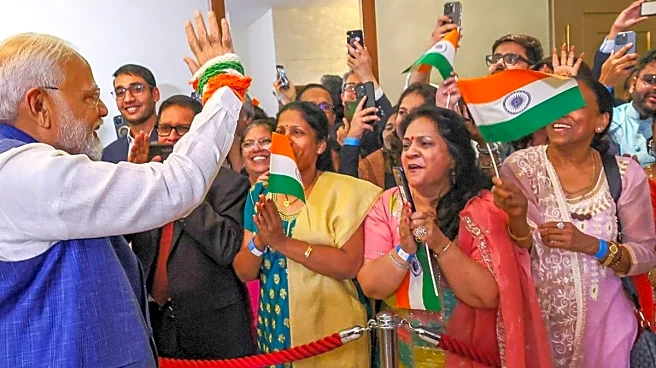When I first moved to the United States to study at the University of Texas at Austin, a campus known for its research and innovation, something struck me almost immediately. My classmates didn’t form their idea of India from news headlines. It came from the people they met. From the professor whose teaching style impressed them to the colleague whose work ethic quietly set the standard. Working in AI research labs at UT Austin’s School of Information made that even clearer. I was surrounded by a mix of nationalities, yet many of the students hired for outsourced projects were Indian, not out of bias, but because they had earned that trust through consistency and competence. Many of us spent long evenings debugging code, discussing ethical AI models,
or staying back after lab hours to go beyond what was expected. It wasn’t just about effort; it came from an innate drive to get things right, something deeply rooted in how many of us were brought up in India, where doing a job well is seen as a reflection of character, not just competence.
Over time, I realised this pattern wasn’t unique to Austin. Across continents, Indian professionals have earned a quiet reputation for reliability and excellence. In places like Silicon Valley, Singapore, and London, they’ve helped redefine what India stands for. That, to me, is soft power at its truest — not announced, but demonstrated. It would be a mistake not to leverage this hard-earned soft power.
As borders tighten and global firms pull back from international hiring, the Indian diaspora’s role has never mattered more. Their experience and networks hold something India urgently needs. The world is changing. For many students, building a career abroad is becoming increasingly difficult. Recent policy shifts, especially in the United States, have added to this uncertainty.
The Trump administration has reportedly urged American companies to reconsider operations in India – a move that, if implemented in the future, could cause a serious blow not only to the Indian economy but also to thousands of tech professionals whose careers depend on cross-border collaboration. This calls for introspection.
India cannot afford to remain so heavily dependent on foreign markets for employment and innovation. That’s exactly why India needs to start seeing its diaspora not just as citizens of another country, but as bridges of trust. Their presence across the world can open doors for Indian start-ups, attract partnerships, and bring home opportunities that can strengthen the country’s future.
Countries like Israel and Taiwan understood this early. In Israel, professionals from the diaspora working in Silicon Valley helped connect American investors with start-ups back home, bringing fresh ideas and experience that helped shape the country’s tech boom. In Taiwan, engineers who had built their careers in California came together to support young companies in Hsinchu Science Park, helping it grow into a global centre for chipmaking. These stories show how people living abroad can give their home countries more than remittances; they can open doors to global markets and investors.
India, with its 30 million-strong diaspora, can lead to greater investor confidence and wider cultural influence. When the world’s business executives and academics trust Indians, they also begin to trust India’s partnerships. To truly leverage this potential, engagement with the diaspora should become part of a long-term national strategy.
A practical step could be the creation of a forum where Indian-origin entrepreneurs and researchers abroad connect directly with start-ups back home. These collaborations can seed joint ventures, open research partnerships, and create smoother investment pathways for high-impact sectors like clean energy and AI.
In an age where power flows through perception, India’s greatest advantage lies in the people who have already earned the world’s trust. Every Indian who leads with excellence abroad does more than succeed personally. They carry India forward.
Tanya Vashishth is a Data Science graduate and Research Fellow at the University of Texas at Austin. Views expressed in the above piece are personal and solely those of the author. They do not necessarily reflect News18’s views.




/images/ppid_a911dc6a-image-177081457256338436.webp)
/images/ppid_59c68470-image-177081525337143071.webp)

/images/ppid_59c68470-image-177081508095753303.webp)
/images/ppid_59c68470-image-177081517392040553.webp)
/images/ppid_59c68470-image-177081512358914704.webp)
/images/ppid_59c68470-image-177081521903588681.webp)

/images/ppid_59c68470-image-177081503618238277.webp)